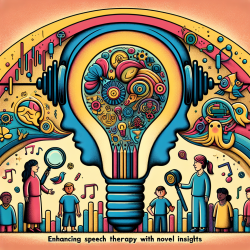In today's digital age, university students face numerous stressors that can significantly impact their mental health. The transition to university life, characterized by new social relationships, academic pressures, and increased independence, can heighten the risk for mental disorders such as depression and anxiety. Addressing these challenges, a recent study titled "An Internet-based intervention for improving resilience and coping strategies in university students: Study protocol for a randomized controlled trial" explores the potential of online interventions to enhance resilience and coping skills among students.
Conducted by Herrero et al. (2019), this study outlines a randomized controlled trial (RCT) aimed at evaluating the efficacy of an Internet-based intervention named CORE (Cultivating Our Resilience). The intervention is based on the Ryff model of well-being and seeks to promote resilience, reduce symptoms of depression and anxiety, and improve overall well-being in university students.
Key Takeaways for Practitioners
As a practitioner in the field of special education or mental health, understanding the outcomes of this study can help you enhance your skills and potentially implement similar interventions in your practice. Here are some key takeaways:
- Focus on Resilience: Resilience is a critical factor in mental health. The study emphasizes the importance of fostering resilience to help students better adapt to stress and adversity.
- Utilize Online Interventions: The CORE program demonstrates that online interventions can be effective in reaching a broad audience, especially digital natives like university students. These interventions can be cost-effective, easily accessible, and can overcome barriers such as stigma and transportation issues.
- Incorporate Evidence-Based Techniques: The CORE program is built on evidence-based techniques organized around six dimensions of well-being: autonomy, self-acceptance, environmental mastery, purpose in life, positive relations, and personal growth. Practitioners can integrate these dimensions into their therapeutic approaches.
- Regular Assessments: The study includes multiple follow-up assessments (at 4 weeks, 8 weeks, 6 months, and 12 months) to evaluate the intervention's long-term efficacy. Practitioners should consider regular assessments to monitor progress and make necessary adjustments to the intervention.
Encouraging Further Research
The study by Herrero et al. (2019) is a step forward in the field of mental health interventions. However, there is a need for more research to validate these findings and explore the long-term benefits of such interventions. Practitioners are encouraged to stay updated with the latest research, attend relevant conferences, and participate in webinars to continually enhance their knowledge and skills.
By integrating the insights from this study into your practice, you can contribute to the mental well-being of university students and help them navigate the challenges of university life more effectively.
To read the original research paper, please follow this link: An Internet based intervention for improving resilience and coping strategies in university students: Study protocol for a randomized controlled trial.










